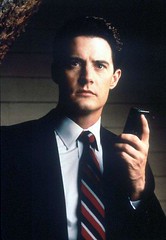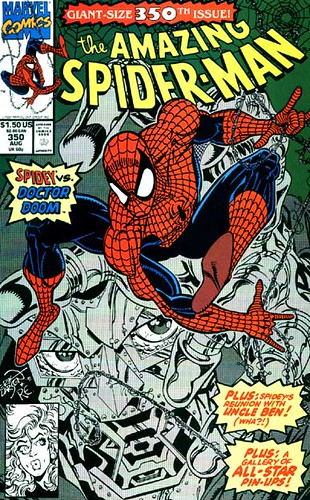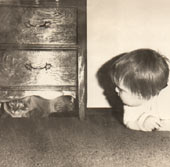 From the Stuff That Only Librarians Care About Dept:
From the Stuff That Only Librarians Care About Dept:
Wikipedia Founder Discourages Academic Use of His Creation
At a recent conference, Jimmy Wales, founder of the popular online encyclopedia project Wikipedia, said he felt that his creation shouldn't be used for serious research.
Mr. Wales says he gets about 10 emails a week from distraught students. “They say, ‘Please help me. I got an F on my paper because I cited Wikipedia’....For God sake, you’re in college; don’t cite [Wikipedia].” Mr. Wales even said that the site is considering creating a fact sheet for professors to distribute to students to help them understand why Wikipedia is widely considered not a scholarly or authoritative source of information.
This is a significant development--to librarians and teachers, anyway. It affirms that while Wikipedia is exhaustive, though by volume alone, it suffers because of its essential nature; encyclopedia entries that can be written and edited by anyone, anytime, can hardly be considered as authoritative as an established reference source, like an encyclopedia, which is subjected to rigorous standards of research, peer review, and editorial control.
The admission also puts an interesting spin on the simmering debate comparing the authority of Encyclopedia Britannica to Wikipedia, considering that Mr. Wales has essentially conceded the race.
I will say that there is at least one subject in which Wikipedia may be considered an authority: Science Fiction continuity. Nowhere else can you get as authoritative an explanation of the vast universes of Doctor Who, Star Wars, and Quantum Leap.
:::::
From the Stuff Only Me and a Few of My Friends Care About Dept:
One of my new favorite websites is Not Coming to a Theater Near You, which specializes in reviewing films that, well, are likely not ever going to come to a theater near you. Enterprising subscibers to Netflix will find the information it contains invaluable, while cineastes everywhere will delight in insightful considerations of art films and filmmakers both revered and expected(see Fitzcarraldo, Secret Honor, Morvern Callar, Eraserhead, Caché), and those that are, shall we say, not typically subjected to the hyper-critical treatment (see The Geneaology of James Bond, Joe Versus the Volcano, RoboCop, Die Hard, Back to the Future Part II). One stand-out feature is their Guide to Twin Peaks, which succeeds in placing the cult series in its proper cultural and artistic context. I ate up each episode's synopsis, especially considering that I only saw many episodes, especially those in the second season, only once, when they originally aired.
One stand-out feature is their Guide to Twin Peaks, which succeeds in placing the cult series in its proper cultural and artistic context. I ate up each episode's synopsis, especially considering that I only saw many episodes, especially those in the second season, only once, when they originally aired.
The real gem of the Guide to Twin Peaks is their authoritative essay on the series' much-maligned coda, Twin Peaks: Fire Walk With Me. I have never read a more thorough, insightful essay on this film, which the reviewer, Tom Huddleston, calls "the most misunderstood of Lynch’s films, the bleakest and most unrelenting, but in many ways also the most human and understanding."
While we're on the subject, do yourself and everyone else a favor, and get familiar with the movement to release the director's cut of TP:FWWM. Apparently an hour of deleted scenes exist, and the French company that owns the footage is seriously considering giving David Lynch the funds he needs to remaster the sound and edit the stock. Sign the petition to help them make their decision, and then maybe we'll get our GARMONBOZIA!!!
:::::
From the Obligatory Quiz Dept:
Hell yes I'm Spider-Man.
Your results:
You are Spider-Man
Spider-Man 80%
Green Lantern 80%
Superman 65%
Iron Man 60%
Hulk 55%
Batman 50%
Supergirl 47%
Catwoman 45%
Robin 44%
Wonder Woman 37%
The Flash 35%
Click here to take the Superhero Personality Quiz
Though I guess I'm about as much Green Lantern as anything.
6.13.2006
Encyclopedias, Cult Flicks, Spider-Man
Subscribe to:
Post Comments (Atom)

No comments:
Post a Comment